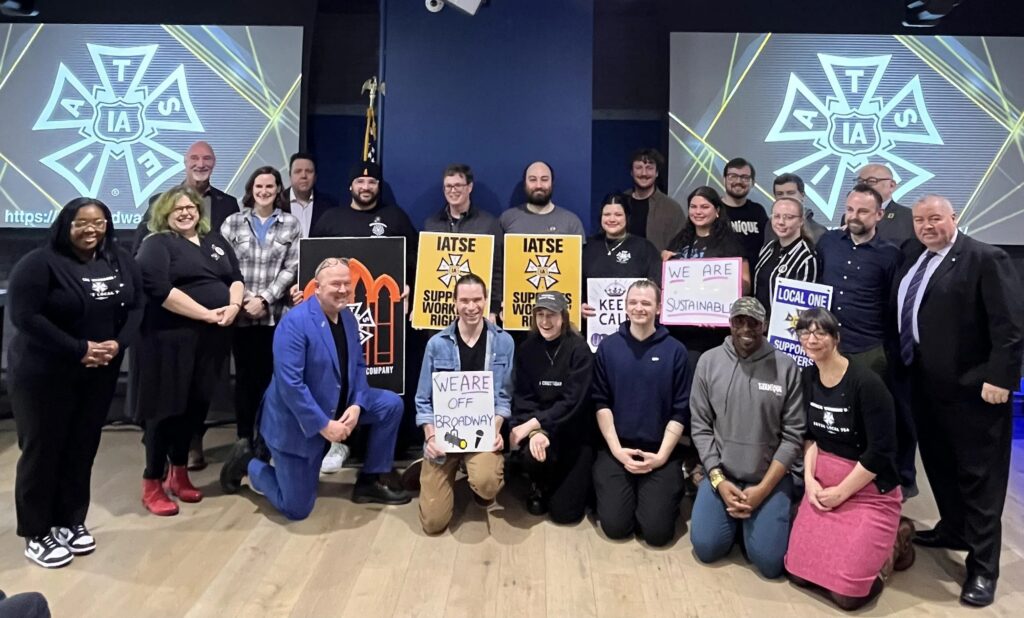Union Showdown Disrupts Filming of ‘Cipher’ in Kentucky
A major IATSE strike has disrupted the filming of Cipher, an upcoming thriller starring Terrence Howard and Joel David Moore, currently shooting in and around Louisville, Kentucky.

Crew members walked off set on Wednesday, citing the production’s refusal to voluntarily recognize their union status under the International Alliance of Theatrical Stage Employees (IATSE).
The walkout adds Cipher to a growing list of independent film productions hit by labor unrest as industry unions ramp up efforts to secure fair contracts and benefits for behind-the-scenes workers.
According to union sources, the striking crew is demanding formal recognition so their time on the production can count toward qualifying days required to access IATSE health and pension benefits.
Production Presses On With Skeleton Crew Amidst Labor Dispute
Despite the IATSE strike, production has not fully halted.
Sources allege that a skeleton crew has continued filming under non-union conditions while producers seek replacement workers to fill the gap left by approximately 35 to 40 striking crew members. The strikers have formed a visible picket line at the film’s base camp and crew parking lot, protesting what they call a breach of fair labor practices.
Industry observers note that the unwillingness of Cipher producers to recognize the union echoes similar disputes seen across the U.S. this year, particularly with lower-budget, independently financed films. Union leaders argue that every production—regardless of size—should offer standard union protections and benefits to crew.
Inside ‘Cipher’: Cast, Budget, and Production Details
Directed and written by Tony Giglio (Doom: Annihilation), Cipher features Terrence Howard, best known for Hustle & Flow and Empire, alongside Joel David Moore of Avatar fame. The film’s budget is reportedly around $3 million, with production underway since May 12.

Although the crew is embroiled in a labor conflict, the film remains covered under SAG-AFTRA and the Directors Guild of America (DGA) contracts for its performers and directors. However, the lack of a corresponding IATSE agreement has become a central flashpoint in the dispute.
The movie is filming in several Kentucky counties, including Adair, Fayette, Russell, and Woodford, and has been approved for a $1 million tax credit under Kentucky’s entertainment incentive program, contingent on completing production milestones.
IATSE’s Growing Campaign for Fair Representation
This latest strike marks the second high-profile IATSE labor action in just a week. On May 23, crew members halted production on a Will Smith music video in Los Angeles, resulting in the producers signing an IATSE contract the same day.
Union leaders say these back-to-back actions signal a renewed momentum in their campaign for universal contract coverage, particularly on indie projects.
An IATSE spokesperson emphasized the importance of solidarity among workers: “Whether you’re on a $200 million studio feature or a $3 million indie, your labor is valuable, and you deserve proper protections.
This strike is about ensuring no one falls through the cracks.”
Terrence Howard and Producers Remain Silent
As of this writing, neither Terrence Howard, director Tony Giglio, nor producers from Cipher have issued public statements addressing the IATSE strike.
The production’s silence has only intensified the tension on set and drawn criticism from union members and industry peers.
The lack of engagement from the film’s leadership, particularly with a high-profile actor like Howard attached, is seen by many as a missed opportunity for producers to swiftly resolve the issue and avoid prolonged disruption.
What This Means for Indie Productions Going Forward
The IATSE strike on Cipher is a cautionary tale for other independent film productions hoping to bypass union agreements in an effort to cut costs.
With rising awareness and stronger organizing from unions like IATSE, productions that attempt to sidestep unionization may face increasing pressure, not only from workers but from the broader industry as well.
The situation is a litmus test for the future of indie filmmaking in the U.S.—one that raises questions about the balance between budgetary constraints and the ethical treatment of crew.









